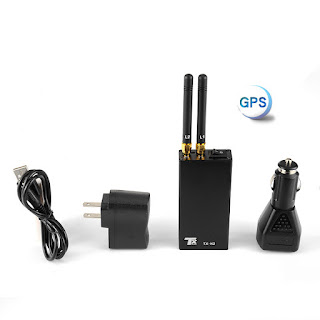In 2015, GPS jammer disrupted flights in South Korea
If you're familiar with GPS (global positioning system), it's likely due to your own personal experience with the technology. Whether you use it for your commute, in planning a vacation, or as a part of your daily job as a pilot, GPS is ubiquitous in modern life—and that ubiquity has led to our collective assumption that GPS is reliable and trustworthy. And yet we live in an age where this isn't always the case. Some flights were recently delayed when a jammer was installed on board a ship sailing along South Korea's coast, disrupting pilots' ability to receive information from satellites. What could cause someone to do this? How does such an act impact air travel? Let's explore how even something as seemingly innocuous as one ship can impact thousands of people through its disruption of technological signals.
The gps signal jammer was installed in a ship sailing in the vicinity of Incheon International Airport to disrupt GPS signals of pilots.
GPS jamming is illegal in South Korea. It’s also illegal in many countries around the world, including Australia, Canada and Japan.
The reason for banning these devices on airplanes and boats is simple: they can cause aircraft to crash or ships to crash. In 2015, a GPS jammer was installed in a ship sailing in the vicinity of Incheon International Airport to disrupt GPS signals of pilots landing at the airport. This incident caused flights from China, Thailand and Vietnam to be delayed for over an hour because pilots rely heavily on their onboard navigation systems for landing safely at airports like Incheon International Airport where there is no room for error when approaching an airplane runway with thousands of passengers onboard.
A South Korean court handed down a 10-month jail term to a boat captain whom prosecutors said had deliberately installed a radio jammer on board in order to block GPS signals and prevent satellite navigation.
The case dates back to 2015, when the man's boat was caught by police while sailing in waters off of the country’s west coast. They found that his boat had been equipped with a radio jammer that prevented any navigation signals from reaching nearby ships or aircraft, which could have potentially caused accidents. The captain was also sentenced for violating Korea's Radio Act (Article 27) during this incident and was ordered to pay 1 million won ($921) as fine
The man said the device was used to stop his vessel's location from being tracked by the Korean Coast Guard after he had been caught illegally fishing in Russian waters in 2013.
According to the man's testimony, he started using the device after he was caught illegally fishing in Russian waters in 2013. The GPS jammer disrupted flights at Incheon International Airport for over two hours on July 8 and also caused a delay of another five days on July 12.
Pilots flying planes arriving at and departing from the airport experienced disruptions to their GPS signals for about 10 minutes. The disruption was caused by a device that interfered with their navigation system, preventing them from using GPS to navigate or track ships.
Many people rely on GPS to navigate water, air, and land. GPS is used in everything from Google Maps to car navigation systems and autonomous vehicles.
However, a portable GPS jammer can cause these devices to malfunction or be rendered useless. In 2015, there were several incidents of GPS disruption over South Korea that led to flight delays and even accidents (1).
The first incident occurred in January when a passenger plane bound for Shanghai was grounded due to the disruption of its navigation system by a jammer—and this wasn't an isolated incident: three more flights were delayed as similar jams were reported later that month (2).
So now you know how GPS works, what can affect it and why this is so important to us. We rely on it every day, we use it in our cars, phones and even when we're flying planes! It's not just about the convenience of getting from A to B though - think about all those situations where lives depend on navigation systems working. When your life depends on a device being accurate, you really don't want anything to mess with it!


.png)
Comments
Post a Comment